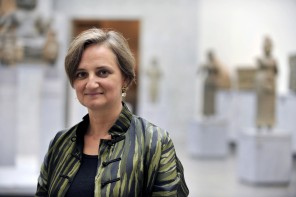Dr Tala Alsoleiman is a Saudi clinical psychologist, wife and mother. She is based in Jeddah and is the co-founder of the Adult & Child Therapy Center; the first psychological services center to be licensed by the Ministry of Health.
She has been in the field of psychology for 20 years working with adolescents, adults and parents. In the span of 20 years, she earned her psychology degrees from the UK, starting with a BA in psychology, MSc degree from UCL in psychoanalytic developmental psychology followed by a doctorate in clinical psychology from Kings College London.
In a conversation with Al Sharkiah, Dr Tala Alsoleiman talks about the importance of mental health and psychosexual therapy.
Dr Tala, why did you decide to pursue a career in clinical psychology?
Interesting question, and my true answer is my intuition. At 17 I knew that I wanted to be a psychologist, and that I wanted to open a mental health clinic to serve my community. It was like a deep knowing of my purpose or my path. At that time access to information was not readily available, therefore, I had no idea how to become a psychologist nor what were the educational pathways to get the degrees. I was led by certainty and conviction that I will materialise my purpose and the path was revealed along the way. The more I learned about psychology, the greater my passion grew and the clearer the path and areas of specialisation became. It took many years of patience, conviction, hard work and support of my loved ones to materialise my purpose and fulfil my goals. But as they say it’s not the destination but the journey that counts and with that journey came personal & professional growth, compassion and understanding.
Can you explain what a clinical psychologist does?
A clinical psychologist or clinical psychology as a specialty is an umbrella term. It encompasses education and training pertaining to mental illnesses, evidence-based treatments, and assessments across the life span. It also includes training in conducting research and service development projects. Furthermore, the majority of clinical psychologists in their final year of training choose an area of specialisation to gain competencies in. Clinical psychologists usually work with moderate to severe presentation. For myself, in my final year of training, I specialised in complex post-traumatic stress disorders (C-PTSD) and in psychosexual difficulties, which is a niche specialty in the region.
Psychosexual difficulties sound like an area that is much needed indeed. Can you explain what issues a psychosexual therapist works with?
As a psychosexual therapist, my work is multi- dimensional. I work clinically with non-organic sexual difficulties (such as vaginismus, erectile dysfunction, dyspareunia, premature ejaculation and so forth). I work with individuals who would like to develop a sexual self and gain an understanding of their bodies and develop a connection to their bodies and sexuality. I work with individuals in long term relationships on re-igniting their intimacy and sexual relation. I also give psychoeducational sessions for pre-and post-marital stages. I also conduct psychosexual workshops and psychosexual education groups for teens and young adults.
Are people receptive to going to a psychosexual therapist?
So far, my experience has been very positive. Most of the referrals are from gynaecologists or urologists. Clients feedback at the end of sessions have been positive. Most reflected on their disappointment for not being taught and educated or introduced to such information about their bodies, the chemistry, biology and psychology of sex growing up. They also felt encouraged that their difficulty is normal and is experienced by many and that it can be worked through. They feel grateful that there is such a service here in Jeddah.
Is there a difference between a sex therapist and a psychosexual therapist?
Yes, I believe, there is. In my opinion, a sex therapist focuses mainly on facilitating sexual engagement through helping clients connect to their bodies, sexuality and pleasure. They educate the clients and introduce techniques to reduce stress and enhance pleasure. They focus on the issue at hand and use evidence-based treatments to alleviate the sexual dysfunction. A psychosexual therapist does the same with the added focus on psychological processes, thoughts and experiences that precipitate and perpetuate the sexual difficulty. We work with the root cause of the difficulty in order to shift intrinsic perceptions, fears and beliefs regarding sex, to a more compassionate, secure, and deserving one. Therefore, our work is deeper and longer.
And tell us more about your experience at ACT…
My experience in ACT has been great. We started ACT of 2009 with my partners and it’s been a success. ACT has been instrumental in spreading awareness regarding mental health, in reducing the stigma around mental health and has cultivated incredible therapists in our field. We continue to provide a high-quality ethical practice, focused on ensuring that our clients receive evidence-based treatments by qualified and supervised therapists. In ACT all our therapists including myself receive weekly or biweekly supervision and ongoing training and professional development opportunities. Hence, my experience at ACT has been one of growth, enlightenment and a very humbling one. I am truly humbled by the amazingly courageous clients that I have met throughout the years. I am humbled by their courage and resilience and for trusting me with their deepest most painful experiences and stories. For that I am truly grateful to every one of them. I learned so much from my clients.
What advice would you give to individuals who ignore their mental health and consider it just a matter of a mood swing?
My advice would be, if you are an adult, not to neglect your mental health issues because with time they will increase in severity, or may develop into more severe forms of mental illness with time if left untreated. Similarly, if you are a parent and feel that your child’s behaviour has changed, or that your child or teen is suffering, monitor him/her and if the symptoms persist for 3-6 months do seek professional help. With this age group early intervention is critical and has a good prognosis. Consulting with a clinical psychologist is not binding and can be helpful in evaluating the difficulty and determining the severity and the need for treatment or not. From this, the individual can make an informed decision about undergoing treatment or not.
In the Middle East, people are often afraid to be stigmatised for visiting a psychologist; what would you say to individuals who resist professional aid?
I personally feel that the stigma has reduced significantly in the last 10 years. Yes, it is still there, but the reality is that nowadays you can do therapy from the comfort of your own home through online sessions and platforms. I do feel that we limit our potential by conforming to these socially constructed stigmas that at the end hinder our healing and personal growth. If one wants therapy they can get it, the question becomes does the person feel they are worth the investment. I personally feel everyone is worth this investment.
Text by Victor Gee




